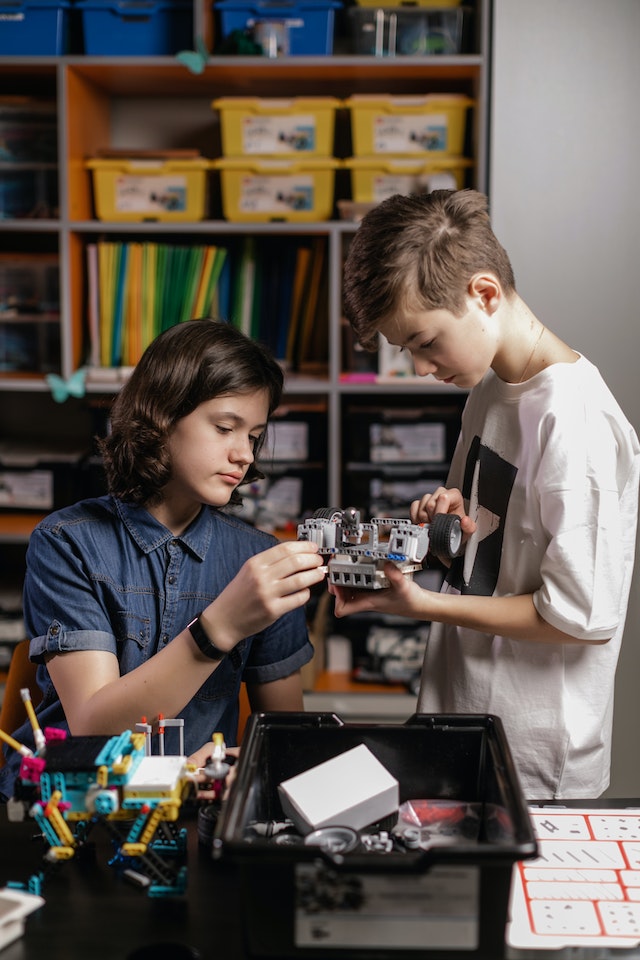Introduction:
Volunteering is a powerful way to instill a sense of responsibility and values in big kids.
It provides them with an opportunity to make a positive impact on their communities while also nurturing important life skills.
In this article, we will explore ten key benefits of volunteering for children, emphasizing how it contributes to teaching responsibility and values to big kids.
Developing Empathy and Compassion:
Volunteering exposes children to diverse experiences and challenges, fostering empathy and compassion towards those in need.
By actively engaging with individuals from different backgrounds, big kids can better understand the struggles others face, ultimately becoming more empathetic and compassionate individuals.
Cultivating a Sense of Responsibility:
Taking part in volunteer activities gives children a sense of responsibility towards their communities.
They learn that their actions can make a difference and that they have a role to play in creating positive change.
Big kids develop a deeper understanding of the impact their choices and actions have on others.
Building Self-Confidence:
Volunteering offers opportunities for big kids to step out of their comfort zones and take on new challenges.
As they contribute their time and skills to help others, they develop a sense of accomplishment and build self-confidence.
Over time, they become more self-assured and capable individuals.
Learning New Skills:
Engaging in volunteer work exposes big kids to a wide range of activities, enabling them to acquire valuable new skills.
Whether it’s organizing events, working as part of a team, or developing leadership abilities, volunteering provides an excellent platform for skill development.
Enhancing Social Skills:
Volunteering encourages big kids to interact with people of different ages, backgrounds, and abilities.
This exposure helps improve their social skills, including communication, teamwork, and adaptability.
They learn to work collaboratively, respect diversity, and appreciate the value of cooperation.
Fostering Gratitude:
Through volunteering, children gain a greater appreciation for the privileges and blessings they enjoy.
By witnessing the struggles of others firsthand, they develop gratitude for their own circumstances and learn to be thankful for what they have.
This cultivates a positive mindset and a sense of contentment.
Strengthening Civic Engagement:
Engaging in volunteer work at a young age helps big kids develop a strong sense of civic responsibility.
They become more aware of societal issues and actively participate in efforts to address them.
This early involvement in community matters fosters a lifelong commitment to making a positive impact.
Expanding Cultural Awareness:
Volunteering often involves working with individuals from diverse cultural backgrounds.
This exposure broadens big kids’ understanding and acceptance of different customs, traditions, and perspectives.
It promotes cultural awareness, tolerance, and an inclusive mindset.
Nurturing Leadership Skills:
Volunteer opportunities often present big kids with leadership roles, allowing them to take charge and make decisions.
They learn to lead by example, delegate tasks, and motivate others.
These experiences help foster essential leadership skills that will benefit them throughout their lives.
Creating Lifelong Values:
By engaging in volunteer work, big kids develop a strong foundation of values such as empathy, kindness, and social responsibility.
These values become an integral part of their character, guiding their actions and decisions in the future. Volunteering sets the stage for a lifelong commitment to giving back to society.
Conclusion:
Volunteering offers countless benefits to big kids, teaching them responsibility and values while making a positive impact on their communities.
From developing empathy and compassion to cultivating leadership skills and nurturing gratitude, the advantages of volunteering are far-reaching.
By actively involving children in volunteer activities, parents and educators can help shape responsible, compassionate, and socially conscious individuals who will contribute to a brighter future.
![]()











